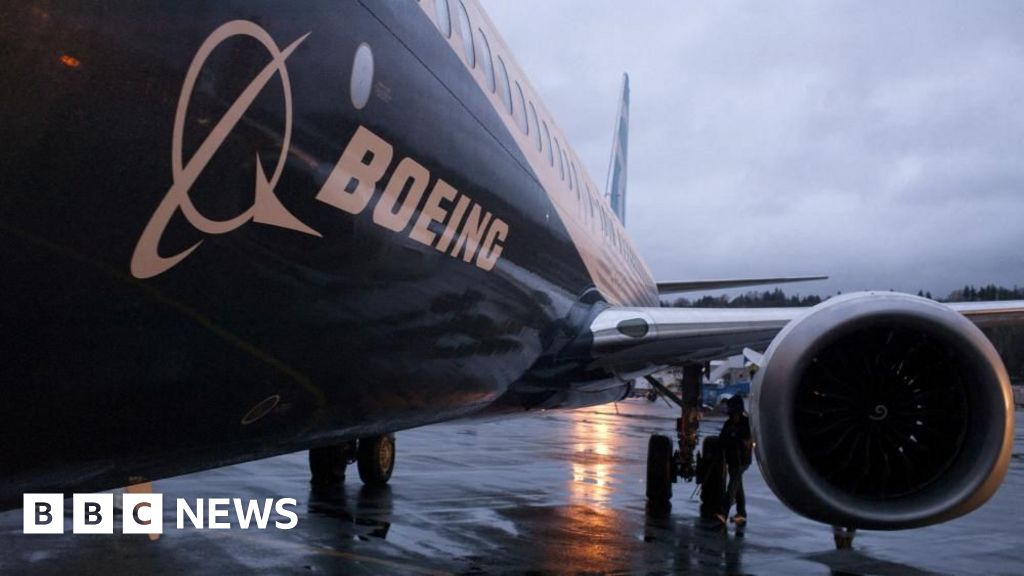Boeing’s Non-Prosecution Agreement: A Controversial Resolution
Boeing is on the verge of formalizing a non-prosecution agreement concerning the tragic crashes of two 737 Max aircraft, a decision that has stirred significant public and legal backlash. The U.S. Department of Justice (DOJ) announced that this deal will allow Boeing to avoid an impending fraud trial that could have branded the aerospace giant as a felon. At the core of this agreement is Boeing’s admission to obstructing federal regulations and a hefty fine amounting to $1.1 billion.
The Crashes and Their Consequences
The backdrop of this agreement is harrowing. The two crashes—one in Indonesia involving Lion Air in October 2018 and the other in Ethiopia with Ethiopian Airlines in March 2019—together claimed 346 lives. Both incidents were attributed to deficiencies in Boeing’s flight control systems. The catastrophic nature of these events has led to widespread scrutiny of Boeing’s practices and regulatory compliance, prompting calls for accountability.
Family Reactions: A Mix of Support and Outrage
While the DOJ reported that many families of the crash victims either supported or did not oppose the deal, others have vehemently condemned it. Javier de Luis, whose sister died in the Ethiopian crash, expressed his profound indignation, stating that the agreement sends a dangerous message to corporations: that safety can be compromised without serious repercussions. “Even if you kill them, just pay a small fine and move on,” he lamented.
Legal representatives for the victims’ families have echoed these sentiments. Paul Cassell criticized the non-prosecution deal as "unprecedented" and "wrong," especially considering it relates to what many term the deadliest corporate crime in U.S. history. These statements underline a looming sense of injustice felt by those who lost loved ones.
Legal Implications and Future Safeguards
Boeing’s admission of conspiracy to obstruct an investigation by the Federal Aviation Administration (FAA) highlights an unsettling reality about regulatory oversight within the aviation industry. Under the terms of the agreement, Boeing is also mandated to enhance its anti-fraud compliance and ethics programs. This is a crucial step towards rebuilding trust but raises questions about the effectiveness of imposed regulations.
After the crashes, the 737 Max fleet was grounded globally for nearly two years, pushing Boeing into a significant operational and financial crisis. The fallout from the incidents has not only affected the company’s reputation but has also led to previous legal actions against individuals within Boeing. A former top pilot faced fraud charges but was acquitted in a 2022 trial, showcasing the complexities involved in corporate accountability.
A Precedent in Corporate Accountability
This non-prosecution agreement follows a previous settlement that offered Boeing protection from prosecution for three years, which prosecutors now claim was violated. The DOJ alleges that Boeing failed to establish and adhere to compliance and ethics protocols aimed at preventing legal violations. Just prior to the expiration of the first agreement, a door panel incident raised alarms about ongoing safety issues, fueling the narrative that regulatory oversight is still critically flawed.
Community Pushback
The sentiment among many victims’ families is one of disappointment and anger. Advocates for the victims argue that a public trial would expose the depth of accountability necessary for such a significant loss of life. Legal representatives like Robert Clifford have described the agreement as a "sweetheart deal," suggesting that it undermines the fundamental principles of corporate responsibility.
Catherine Berthet, who lost her daughter in the Ethiopian Airlines crash, articulated her shock at the DOJ’s decision, labeling it a blind faith in Boeing. Her personal anguish echoes the sentiments of many affected families, who demand justice and accountability rather than financial settlements.
Ongoing Developments
As the Justice Department moves to finalize the agreement, it is expected to file a motion for case dismissal soon. According to court filings, this agreement is framed as providing substantial accountability and benefits without the uncertainties associated with going to trial. However, the mixed reactions from the families involved signal that the quest for justice and closure is far from over.
As discussions continue and the legal processes unfold, the relationship between corporate accountability and consumer safety remains at the forefront of public discourse. Each new development serves as a reminder of the high stakes involved in the aviation industry and the responsibilities that come with it.


